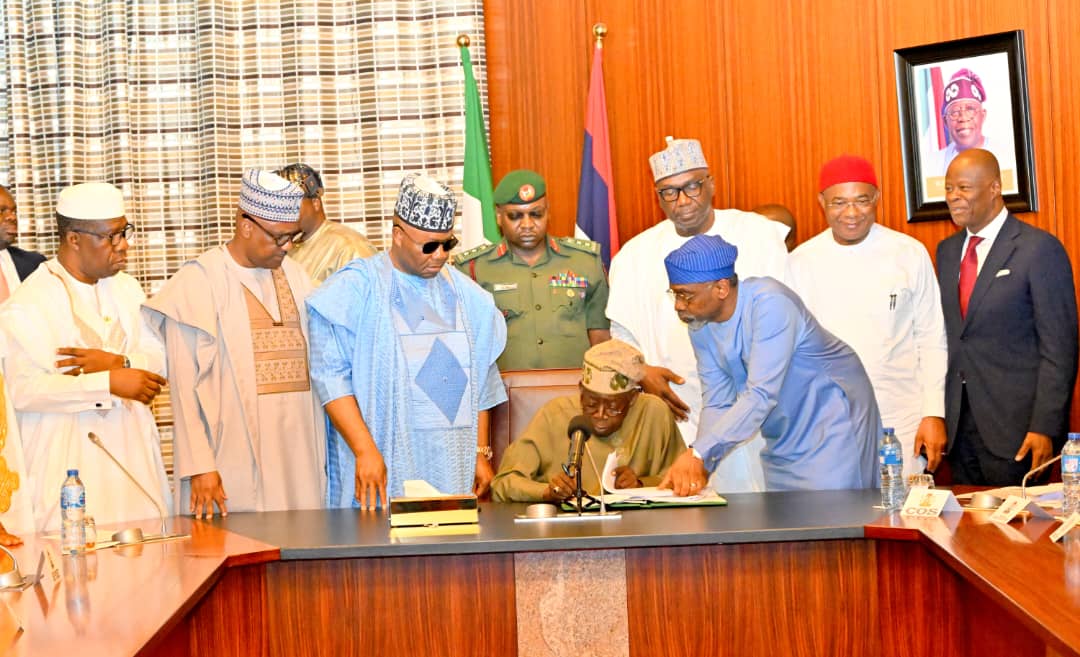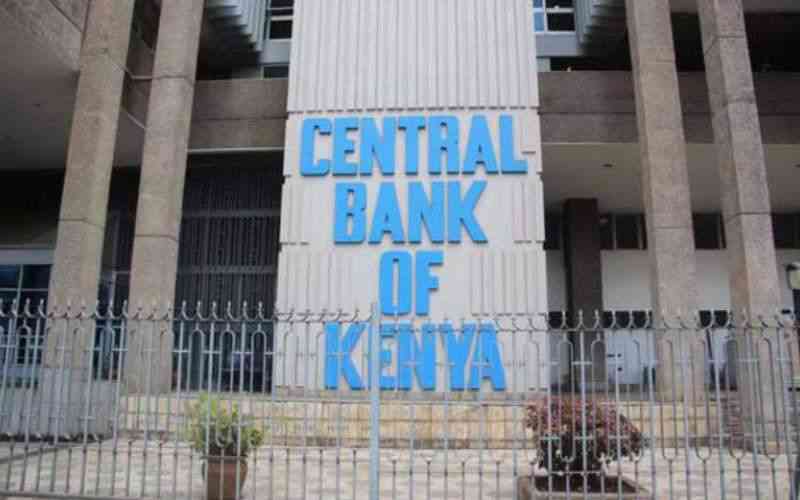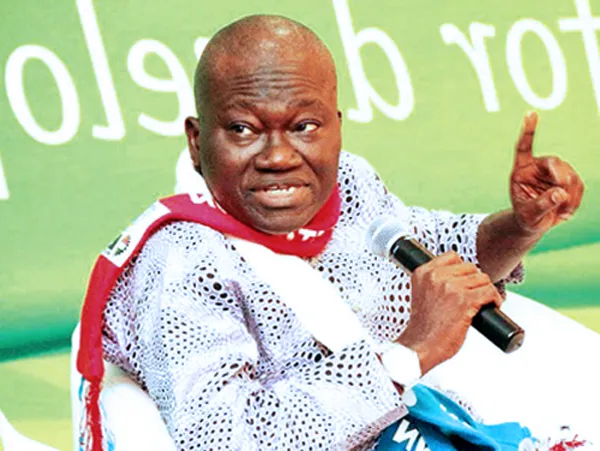Nigeria's Comprehensive Tax Reform Laws

President Bola Tinubu on Thursday signed into law four new tax bills recently passed by the National Assembly, marking a pivotal moment for Nigeria's economic reforms and national prosperity. These landmark legislations are aimed at consolidating fragmented tax laws, establishing a uniform framework for tax administration, creating a more autonomous revenue agency, and fostering cooperation among revenue authorities across all levels of government.
The four crucial bills signed into law include: the Nigeria Tax Bill (Ease of Doing Business), designed to consolidate Nigeria's diverse tax laws into a harmonized statute; the Nigeria Tax Administration Bill, which establishes a uniform legal and operational framework for tax administration across federal, state, and local governments; the Nigeria Revenue Service (Establishment) Bill, which repeals the Federal Inland Revenue Service Act and creates a new, performance-driven national revenue agency, the Nigeria Revenue Service (NRS); and the Joint Revenue Board (Establishment) Bill, which provides a formal governance structure to facilitate cooperation and coordination among revenue authorities at all levels.
At the signing ceremony at the State House, President Tinubu emphasized that these new laws represent a new lease of life for Nigerians and future generations, signaling Nigeria's readiness for modern economic growth and international investment. He acknowledged the initial difficulties faced in passing the reforms but lauded the National Assembly for its leadership and courage in the face of disputes, stating that tax reforms are rarely easy anywhere in the world.
A significant outcome of these reforms is the transformation of the Federal Inland Revenue Service (FIRS) into the Nigeria Revenue Service (NRS), effective January 1, 2026. The NRS will have an expanded mandate, including non-tax revenue collection, and is designed to operate with enhanced autonomy, transparency, accountability, and efficiency. This change is also expected to reduce the cost of revenue collection, as the NRS will retain only two percent of collected taxes, down from the four percent retained by the former FIRS.
The implementation of these fiscal reform laws is set to commence on January 1, 2026, providing a six-month transition period for thorough preparation, sensitisation of all Nigerians, and alignment with the government's fiscal calendar. This deliberate timeline aims to ensure smooth integration and understanding of the new system.
Taiwo Oyedele, Chairman of the Presidential Committee on Fiscal Policy and Tax Reforms, highlighted that the reforms are inherently pro-growth and pro-poor, focusing on improving equity, reducing the burden on vulnerable Nigerians, and stimulating economic development. Key provisions include significant tax relief for low-income earners: individuals earning up to N1 million annually (with rent relief), those earning below N250,000 monthly, or N800,000 yearly will be exempted from personal income tax. Additionally, essential goods and services such as food items, healthcare, education, transportation, and accommodation are now exempted from Value Added Tax (VAT), a move expected to lower the cost of living for millions, as these categories account for over 80% of average household spending in Nigeria.
Small businesses with annual turnovers below N50 million will also benefit from exemptions from company income tax, VAT, and PAYE obligations, simplifying their compliance and encouraging formalization. The corporate tax rate for medium and large companies is also set to be reduced from 30% to 27.5% in 2025 and 25% in subsequent years. Oyedele clarified that the intention behind these reforms is not to increase taxes but to plug leakages, leverage technology, simplify processes, and expand the tax base, ensuring a fairer and more efficient system.
Zacch Adedeji, Chairman of the FIRS (now NRS), expressed profound satisfaction at the signing, describing it as a dream come true. He affirmed that the new tax laws will build a framework for a more focused and opportunity-creating system. Senate President Godswill Akpabio, Senator Sani Musa, and Hon. James Faleke also praised President Tinubu's leadership and courage, noting that the harmonized tax system would modernize Nigeria and bring more money for national development, lasting for generations to come.
Economic experts and analysts largely welcomed the new laws, emphasizing their potential to improve the ease of doing business, enhance revenue generation, and foster greater transparency and accountability in tax collection. They underscored that effective implementation, requiring political will and collective participation from all stakeholders—including the private sector, public sector, civil society, and international partners—will be crucial for the success of these transformative reforms. The Nigeria Employers' Consultative Association (NECA) also expressed strong support, viewing the legislation as a long-awaited relief from crippling multiple taxation on businesses.
The overall aim is to grow Nigeria’s tax-to-GDP ratio to 18% by 2026 without overburdening citizens, by simplifying tax rules and encouraging voluntary compliance, ultimately funding infrastructure and public services and reducing reliance on borrowing.
You may also like...
Changing Cultures: How Africa Sips It's Alcohol

Discover which countries sip the most alcohol in Africa, and the health impacts this could have on the long run.
SEC Confirms Ripple's Victory: Legal Battle Concludes as Fundraising Greenlit!

The U.S. Securities and Exchange Commission has concluded its lengthy legal battle with Ripple, issuing a critical waive...
Legal Firestorm: South Korean Ex-President's Wife Targeted in High-Stakes Arrest Warrant

South Korean investigators have secured an arrest warrant for Kim Keon Hee, the wife of jailed former President Yoon Suk...
ASEAN-Brokered Breakthrough: Thailand & Cambodia Edge Closer to Historic Border Deal

Thailand and Cambodia engaged in high-level talks in Malaysia, initiated by ASEAN, to address escalating border tensions...
Kenya's Central Bank Slashes Key Rate to 9.5%: Economic Impact Looms

Kenya's Central Bank has lowered its benchmark rate to 9.50 percent, continuing its policy to stimulate economic activit...
Is Humanity Trading Connection for AI Comfort? A Deep Dive

As individuals increasingly turn to AI for emotional support, questions arise about the erosion of human connection. Thi...
Local Tragedy: Hotel Under Construction Collapses in Edo, Claims Owner's Life

A hotel under construction in Uromi, Benin City, collapsed, tragically killing its owner, Andrew Isesere. Eyewitnesses a...
Naked Gun Remake Delivers Laughs, Neeson & Anderson's Chemistry Wows!

This season's film releases offer a diverse lineup, highlighted by the highly successful "The Naked Gun" remake, starrin...



